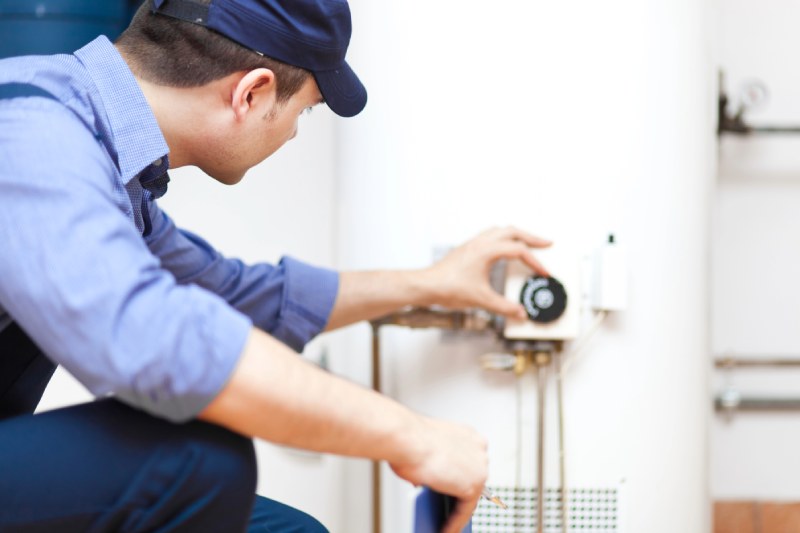Seasonal Plumbing Maintenance: What Every Homeowner Should Know
Plumbing systems are vital to the functionality of any home, yet they often go unnoticed until something goes wrong. Much like other aspects of your home, your plumbing requires routine care, and that care changes with the seasons. From preventing frozen pipes in winter to ensuring proper water flow in the summer, understanding seasonal plumbing maintenance is key to avoiding major repairs down the line.
This guide outlines essential plumbing tasks for each season and explains how being proactive can help you avoid plumbing disasters, protect your home, and even save on water and energy costs.
Winter: Protecting Your Pipes from the Cold
Winter is the most critical time to pay attention to your plumbing. Cold weather can wreak havoc on your pipes, especially if they’re not properly insulated or maintained. Frozen pipes are one of the biggest wintertime risks, as they can crack or burst, leading to flooding and costly repairs.
Winter Plumbing Tips:
- Insulate Exposed Pipes
Pipes located in unheated areas of your home, such as basements, attics, garages, or crawl spaces, are vulnerable to freezing. Insulating these pipes with foam pipe insulation can help prevent them from freezing during the coldest months. - Let Faucets Drip
On particularly cold nights, letting faucets drip slightly can prevent pressure from building up in your pipes, which is a leading cause of burst pipes. Running water, even at a trickle, keeps the pipes from freezing. - Seal Leaks and Drafts
Drafty windows, doors, or foundation cracks can expose your pipes to freezing temperatures. Sealing these gaps with caulk or weather stripping can help keep cold air out and protect your plumbing. - Shut Off Outdoor Water
Don’t forget to disconnect hoses and shut off water to outdoor faucets. Leaving hoses attached can cause water to back up into the pipes, which can freeze and cause the pipes to burst.
Winterizing your plumbing system before the cold weather sets in can save you from dealing with a major headache (and expense) during the heart of the season.
Spring: Checking for Winter Damage
Spring is the time to assess your plumbing for any damage that may have occurred during the winter. As the temperature rises, it’s important to inspect your pipes, faucets, and appliances to ensure everything is functioning properly after months of cold weather.
Spring Plumbing Tips:
- Inspect for Leaks
Freezing and thawing during the winter months can cause pipes to crack or joints to loosen. Once the weather warms up, inspect your home for signs of leaks, especially in areas where pipes are exposed to cold temperatures. Look for damp spots on walls, ceilings, or floors, and check under sinks for any dripping water. - Test Your Sump Pump
Spring often brings heavy rain, and if you have a basement, you want to make sure your sump pump is working properly to prevent flooding. Test the sump pump by pouring water into the pit to ensure it kicks on and drains the water away efficiently. - Clean Out Gutters and Downspouts
Clogged gutters can lead to water overflow, which can damage your foundation and cause leaks in your basement. Clean your gutters and ensure your downspouts direct water away from your home to prevent drainage issues. - Check Outdoor Faucets
After a long winter, it’s a good idea to inspect your outdoor faucets for any damage. Turn on the water and ensure the flow is smooth and there are no leaks, which could indicate a pipe has cracked during the freeze.
Taking the time to inspect and maintain your plumbing in the spring ensures you won’t face any lingering issues from winter when you start using your system more frequently.
Summer: Managing Water Demand and Efficiency
Summer brings warmer temperatures and an increase in water usage, especially if you have a lawn or garden to maintain. Your plumbing system should be ready to handle the extra demand, but it’s also important to focus on water efficiency to avoid waste and high utility bills.
Summer Plumbing Tips:
- Inspect Sprinkler Systems
If you have an irrigation system for your lawn or garden, check for leaks, broken heads, or clogs. A leaking sprinkler head can waste gallons of water over time, leading to higher bills and water damage to your yard. - Monitor Water Pressure
During summer, water pressure can fluctuate due to higher demand in your neighborhood. If you notice weak water flow, inspect your water pressure regulator (if you have one) or call a plumber to assess the situation. - Check for Slow Drains
Summer is often a time for entertaining, meaning your plumbing system may see more use. If you notice slow drains in your kitchen or bathrooms, it’s best to address them early before they turn into full-blown clogs. A quick clean with a plunger or drain snake can prevent blockages. - Be Mindful of Your Garbage Disposal
Summer barbecues often lead to more food waste being washed down the drain. Avoid overloading your garbage disposal with fibrous materials like corn husks, potato peels, or grease, as these can cause clogs and damage the disposal. Run cold water while using the disposal to help break down food particles.
By being aware of your water consumption and taking steps to maintain your plumbing during the summer, you can ensure your system is running efficiently and avoid any issues during the busiest months.
Fall: Preparing for the Cold Ahead
Fall is the time to prepare your plumbing system for the upcoming winter. The weather is still mild, making it the perfect season to check your system and make any necessary repairs before the cold sets in.
Fall Plumbing Tips:
- Inspect Your Water Heater
As temperatures drop, you’ll rely more heavily on your water heater. Inspect the unit for any signs of wear or leaks, and consider flushing the tank to remove sediment buildup, which can reduce efficiency. If your water heater is old or malfunctioning, it may be time for a replacement before the cold weather hits. - Clean Your Drains
Fall is a great time to have your drains professionally cleaned. After a busy summer, drains can become clogged with debris. Clean drains ensure your plumbing is ready for winter’s heavier use and prevent blockages during the colder months. - Test Shut-Off Valves
Shut-off valves can corrode or become stuck over time, which is why it’s a good idea to test them before winter. Ensure that all valves, including those connected to outdoor faucets and hoses, can be turned off easily. - Inspect Sewer Lines
With falling leaves and heavier rains, your sewer lines may become more vulnerable to blockages. Have a plumber inspect your sewer line for any potential issues, such as tree root intrusion, which could cause backups during the winter months.
By preparing your plumbing system in the fall, you can avoid major problems in the winter and keep your home safe from potential damage.
Conclusion
Seasonal plumbing maintenance is an essential part of homeownership. By keeping up with simple tasks throughout the year, you can avoid costly repairs, save on water bills, and keep your home’s plumbing in top condition.
For homeowners who want professional help, Ares Plumbing offers expert plumbing services to ensure your system is running smoothly no matter the season. By taking proactive measures, you can keep your plumbing efficient, safe, and problem-free all year round.





